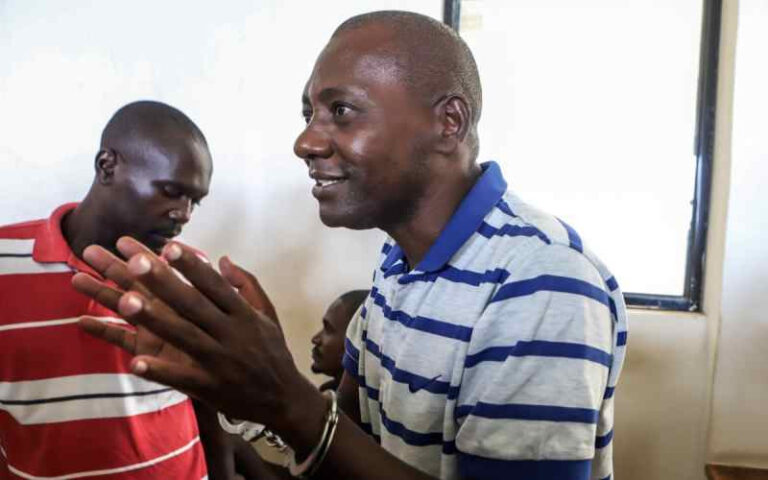Today, we’re diving into a pretty serious topic that’s been making headlines lately. It’s a bit of a heavy subject, but I think it’s important we talk about it. So, grab a cup of coffee and let’s chat about this shocking case from Kenya.
Recently, news broke about a truly heartbreaking discovery in Kenya. Authorities found a large number of people who had tragically died from starvation. As the story unfolded, it became clear that this wasn’t just a terrible accident, but something much more sinister.
The man at the center of this awful situation is Paul Mackenzie Nthenge. He’s not exactly a household name, but he’s been known in certain circles for a while now. Mackenzie, as he’s often called, used to be a taxi driver before he decided to start his own church.
Mackenzie’s church, which many are now calling a cult, had some pretty out-there beliefs. They thought the world was going to end soon and that starving themselves would help them meet Jesus. I know, it sounds crazy to most of us, but sadly, many people were convinced by these ideas.
The whole thing came to light in mid-April 2023. Someone tipped off the police about some suspicious activities in the Shakahola forest. When the authorities went to check it out, they found something truly horrifying.
The Shakahola forest, located in Kilifi County, Kenya, became the site of this terrible tragedy. At first, they found just a few bodies. But as they kept searching, the number kept growing. As of now, they’ve found over 100 bodies, and they’re still looking. It’s just heartbreaking to think about.
As soon as the bodies were discovered, the Kenyan authorities jumped into action. They cordoned off the area and brought in forensic experts to help with the investigation. They’ve been working tirelessly, digging up the forest floor and using all sorts of scientific methods to gather evidence.
The evidence they’ve found so far is pretty damning. They’ve got testimonies from survivors who managed to escape, documents from the cult outlining their beliefs, and even some recordings of Mackenzie preaching his dangerous ideas. It’s all painting a pretty clear picture of what went down.
Now, here’s where things get even more serious. The Kenyan government has decided to charge Mackenzie with terrorism. I know what you’re thinking – isn’t terrorism about violence and bombs? Well, not always.
In Kenya, the law defines terrorism pretty broadly. It includes acts that create fear among the public or disrupt social order. The prosecutors are arguing that by convincing people to starve themselves to death, Mackenzie caused widespread fear and disrupted society. It’s a bit of a unique approach, but they seem pretty confident about it.
As you can imagine, people in Kenya and around the world are shocked and outraged. Social media has been buzzing with people expressing their disbelief and calling for justice. It’s been really tough for everyone to process, especially for the families of the victims.
The Kenyan government has been very vocal about this case. President William Ruto himself called it a massacre and promised swift action. The police chief has been giving regular updates, assuring the public that they’re doing everything they can to get to the bottom of this.
This whole horrible situation might lead to some changes in how Kenya deals with religious groups. There’s talk of tightening regulations and increasing oversight to prevent something like this from happening again. It’s a tricky balance between religious freedom and public safety, but something clearly needs to be done.
As for what’s next, Mackenzie is in custody and awaiting trial. Given the severity of the charges and the evidence they’ve gathered, it’s likely he’ll be facing a very long time in prison if convicted. The legal proceedings are expected to start soon, and you can bet it’ll be a high-profile case.
This case serves as a stark reminder of the dangers of extreme beliefs and the importance of critical thinking. Let’s hope some good can come from this tragedy in the form of better protections for vulnerable people.

